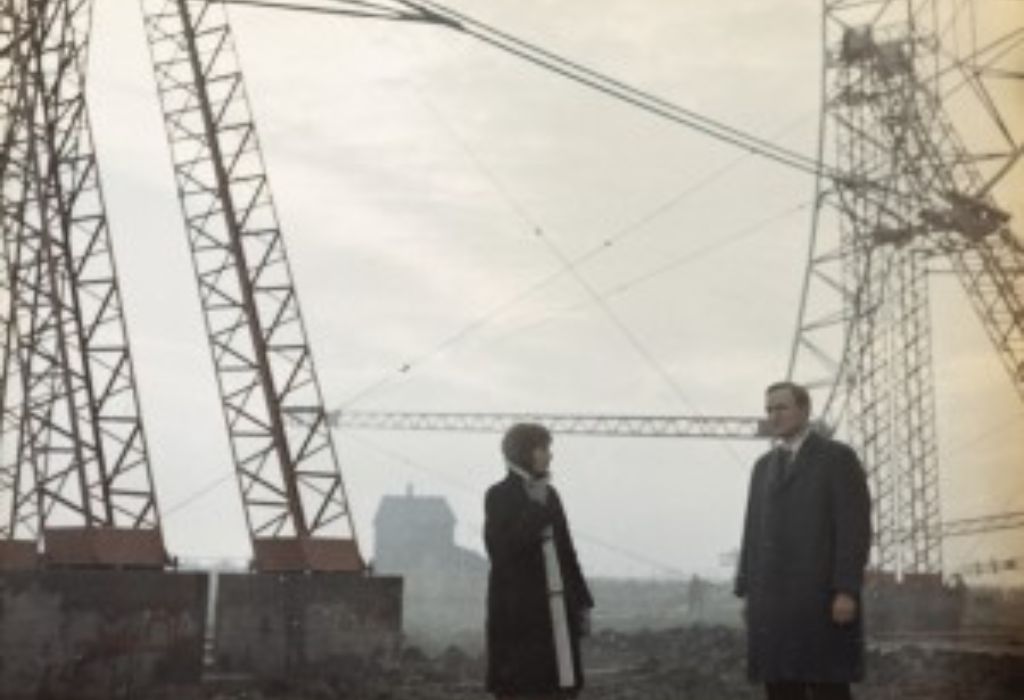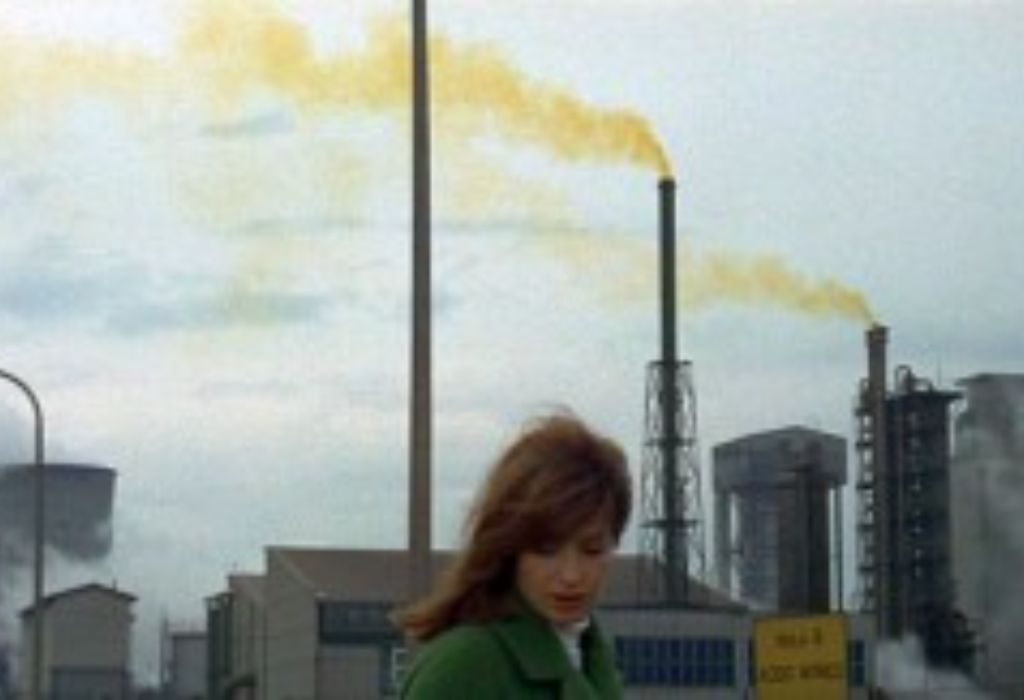“Antonioni’s ‘Red Desert’ poignantly reflects environmental degradation, highlighting the unsettling consequences of unchecked industrialization on nature and humanity.”
“Red Desert” (1964), directed by Michelangelo Antonioni, explores environmentalism as a central theme.
Set against a stark industrial landscape, the film delves into the impact of technological progress on nature and human psychology.
Antonioni’s visual mastery captures the alienation caused by polluted surroundings, emphasizing the struggle between industrialization and ecological harmony.
The film serves as a poignant reflection on environmental degradation and the disquieting effects of modernization, offering a thought-provoking commentary on humanity’s relationship with the natural world.
Environmentalism in “Red Desert” (1964)
Michelangelo Antonioni appreciates the aesthetic of the factories depicted in his 1964 film “Red Desert.”
The main character, Giuliana, struggles to adapt to progress, particularly industrialization.
Despite her aversion to the hideous environment filled with yellow gas, garbage, industrial waste, and polluted water bodies, those around her accept these surroundings.
Giuliana experiences a nervous breakdown due to both her repulsion toward the environment and her sense of alienation from people accustomed to the destructive impacts of so-called “progress.”

The film’s opening sequences feature an out-of-focus factory and a steel tower emitting fire, symbolizing the dragon of industrialization, accompanied by a nuclear reactor emitting smoke. Giuliana, portrayed by Monica Vitti, is introduced near her husband’s factory.
She is wearing the only green in the bleak landscape, surrounded by the unsettling imagery of fire, trash, and industrial waste, evoking an unnatural and unsettling atmosphere reminiscent of hellish fires.
The scene shifts to the factory, where Giuliana’s husband holds a managerial position.
A worker reports high steam temperatures, but the boss dismisses potential danger, instructing the worker to adjust controls.
Giuliana enters and waits in his office, passing a spot emitting smoke on the factory floor, causing her to jump out of the way.
Later, her husband and Corrado (Richard Harris), seeking workers for Buenos Aires, investigate smoke outside the plant.
Smoke initially emerges, then intensifies, billowing out to obscure parts of the factory and sky.
Despite the ominous sight, the two men calmly observe, backing up slightly to maintain visibility but expressing no concern.
The film then transitions to Giuliana’s modern, stark house with architecture resembling the factory pipes.
The son’s toys are all mechanical, lacking traditional items, emphasizing a cold, industrial environment.
A child-sized robot mindlessly moves back and forth, and the boy’s father gives him a mechanical top with a gyroscope inside.

Giuliana confides in her husband about dreaming of her bed sinking in quicksand, symbolizing her perception of an unstable and unsafe world.
Having experienced hospitalization for mental instability and a suicide attempt, she seeks stability.
Later, she explores an empty store for her ceramics business and joins Corrado in searching for workers in desolate, eerie streets with stark, boxy buildings.
Giuliana’s husband joins, and they pass a polluted lake with blackened, disgusting water, prompting a trite remark from Giuliana’s husband about waste disposal.
Further, they encounter more oil-fouled water, appearing thick, toxic, gooey, and foul.
As they progress, they reach a shack by the ocean with two rooms. One room has a wood-burning stove, and a bed occupies the other.
Giuliana, her husband, Corrado, the boss of another business, and his wife and another woman playfully tease about an orgy but ultimately refrain.
Next, they wreak havoc on their surroundings, dismantling the wall between the two rooms and tossing the boards into the fireplace.
The shack’s owner protests the property destruction. A doctor and ambulance arrive at a nearby ship, with a seaman hoisting a yellow flag indicating disease or pestilence, a fitting response to the observed pollution.
Returning home, Giuliana’s son, experiencing leg numbness or faking it, requests a story.
Her tale unfolds in a contrasting environment – a pristine beach with clear water, devoid of people but teeming with cormorants, seagulls, and wild rabbits.
Nature harmonizes with a backdrop of green vegetation and rocks sculpted by the waves, resembling human forms. She hears a collective song from the surroundings, feeling attuned to nature.
Seeking solace, Giuliana visits Corrado at his hotel, confessing her struggle to navigate life without people.
Her difficulty arises from the disparity in their acceptance of what she deems unacceptable.
Turning to Corrado for support, he, driven by likely sexual interest, fails to address her deeper issues as their intimate encounter provides no resolution.
At the film’s conclusion, Giuliana stands outside her husband’s factory with her son. Smoke emerges from the ground, and a sudden burst of smoke catches their attention.
Her son inquires about the poisonous yellow gas from a smokestack, and Giuliana calmly mentions that the birds have learned to steer clear of it.
As the world blurs, Giuliana experiences eerie, science-fiction-like music reminiscent of previous bouts of alienation.
Despite this, she refrains from dwelling on it and resolves to adapt as best as possible.

